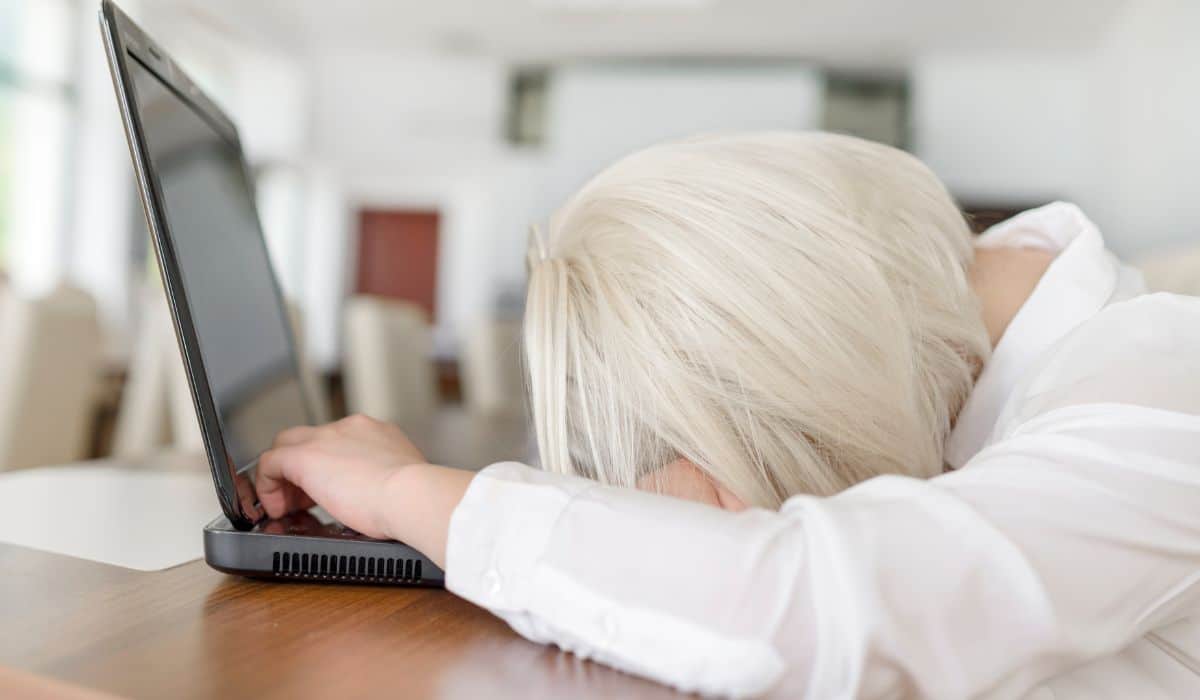
We’ve all been there: struggling to stay awake after lunch or nodding off at 3:30 even after a full night of sleep. In studies, this is called "Excessive Daytime Sleepiness" (because apparently if scientists are going to take it seriously, it needs a Fancy Capitalized Name) and it's surprisingly common, even among people who spend enough hours in bed.
This isn't about people who are tired because they didn't sleep enough. If that's you, then you know why you're tired and you know the solution. But some people feel exhausted or get sleepy during the day even when they spend enough time asleep at night. One common cause of daytime sleepiness is obstructive sleep apnea (there’s a whole post on this here if you’re interested). But sleep apnea isn’t the only cause of daytime sleepiness. For example, this study found that daytime sleepiness was associated with obesity even in people without sleep apnea.
Looking at the connection between diet and sleepiness, there’s some scientific truth to the common knowledge that eating a big meal makes you sleepy. But what’s more interesting is the connection between daytime sleepiness and metabolic health. Big-picture problems like inflammation and insulin resistance are surprisingly strongly connected to daytime sleepiness, even when sleep apnea isn’t in the picture. That might be why so many people feel like they have more energy on Paleo: by fixing the dietary problems that were causing inflammation and insulin resistance, they actually tackled the root cause of their sleepiness.
Meal Size, Meal Frequency, and Sleepiness
When it comes to food and sleepiness, the obvious place to start is the common knowledge that eating a big meal makes you sleepy. That’s true, but the even more interesting part is that low-carb and low-fat meals seem to be about equivalent in that respect.
This study found that a meal made people sleepier 1.5 hours after eating, regardless of what time of day they ate. The effect was the same for a low-fat/high-carb meal and for a high-fat/low-carb meal. A different research group confirmed that result, although a third study found that a high-fat morning meal made the subjects feel sleepier. There's a common idea in the low-carb world that eating carbs makes you sleepy, but from the actual evidence, this doesn't seem to be well-supported by study results.
A word of disclaimer, though: all these studies were done in healthy subjects, so for people with insulin resistance or poor carb tolerance, the results might not apply.
Sleepiness, Inflammation, and Metabolic Health
But there’s a bigger picture here, more than just looking at one specific meal and how it affects sleepiness immediately afterwards. The more interesting connection between diet and daytime sleepiness goes through inflammation and insulin sensitivity.
Diet, Inflammation, and Daytime Sleepiness
Inflammation is the natural immune response to injury, but it was never designed to be an all-day, every day kind of thing. Lots of things can cause inflammation (physical injuries, stress, sleep deprivation…) but one big player is food. Inflammatory foods are foods that chronically activate the inflammatory immune response, basically keeping you “injured” all the time. (Inflammation 101 is here if you're new to this) Inflammatory foods include industrial oils, oils rich in omega-6 fats, excessive amounts of sugar, and gut-irritating foods like grains.
Inflammation is one cause of daytime sleepiness, so if you’re constantly struggling to stay awake, inflammatory foods (and other causes of inflammation) should come under the microscope.
This study explains the science behind the inflammation-sleepiness connection. The researchers studied inflammatory cytokines (proteins produced during the inflammatory response). According to the study, these inflammatory cytokines have a natural daily cycle, with a high in the middle of the night, around 1-2 am. Previous research had found that injecting humans with inflammatory cytokines makes them sleepy right away, confirming the theory that a high level of inflammatory cytokines has something to do with causing sleepiness.

Then the researchers studied levels of inflammatory cytokines in patients with excessive daytime sleepiness (EDS). They concluded that two cytokines in particular, tumor necrosis factor-α and interleukin 6, are major drivers of “sleepiness and fatigue in disorders of EDS in humans.” In patients with excessive daytime sleepiness, these cytokines were abnormally elevated all the time with a weird peak around 6-7 am (Remember that the normal peak is in the middle of the night, when you’re supposed to be asleep).
The researchers weren’t sure exactly what caused the elevations of TNF-α and IL-6, and that’s not what the study was designed to measure anyway. But the point here is that these researchers concluded that inflammatory cytokines play a causal role in daytime sleepiness. This puts the spotlight on inflammation - and the foods that cause it - as a culprit for the involuntary mid-afternoon nap.
Diet, Insulin, and Sleepiness
Another factor in diet-related sleepiness is insulin. Insulin is a hormone that (among its many jobs) metabolizes carbohydrates. The typical American diet (high in processed carbs, sugar, and industrial fats) causes all kinds of problems with insulin function, starting with insulin resistance and moving right on up to diabetes (this is a huge topic, so if you’re new to this, start here).
Insulin resistance and inflammation are related problems: as this study explains, the same inflammatory cytokines that are all out of whack in patients with excessive daytime sleepiness also cause insulin resistance. Excessive daytime sleepiness is associated with poor glucose control independently of obesity. And sleep-disordered breathing a major cause of daytime sleepiness, is associated with insulin resistance and poor glucose tolerance.
Here’s another study on women with PCOS. PCOS is a hormonal disease and one of the most common symptoms is insulin resistance. The researchers reported that:
“Eighty percent of PCOS patients reported daytime sleepiness, in contrast with 25% of normal controls. Daytime sleepiness was equally distributed among obese and nonobese women with PCOS, suggesting that in PCOS women, daytime sleepiness exists independently of obesity or sleep apnea. The nighttime sleep patterns of the PCOS and control groups were similar...PCOS, with its neurohormonal abnormalities, may be compounded by, or elicit increased activity of, the stress system, which, in turn, may lead to increased difficulty in falling asleep.”
Translation: a huge majority of PCOS patients were sleepy during the day, not because they had sleep apnea and not because they were obese, but because of the “neurohormonal abnormalities” (read: insulin resistance, among other problems) involved in PCOS.
Inflammatory and Metabolically Dangerous Diets: Explaining the Connection Between Obesity and Daytime Sleepiness
These two connections might explain why daytime sleepiness is so closely associated with obesity, even in people who don’t have sleep apnea. The same type of diet that tends to cause obesity (high in processed carbs, industrial oils, and sugar; low in vegetables, fresh fruit, and micronutrients) also tends to cause inflammation and metabolic problems. The real root problem isn’t “obesity causing sleepiness;” it’s “the same diet causing BOTH obesity and sleepiness.”
The solution, from a Paleo standpoint, is very simple: stop eating in a way that causes inflammation and insulin resistance, and start eating in a way that heals these problems. That includes…
- Removing inflammatory foods like industrial oils, processed sugars, and refined grains from your diet.
- Eating anti-inflammatory foods like fresh vegetables, fish, and spices
- Addressing insulin problems by adjusting the carbs in your diet to a level that works for you personally (this may be different from the level that works for someone else).
It’s also well worth mentioning the lifestyle factors here: exercise is amazingly powerful medicine for both inflammation and insulin resistance, and stress management is also huge.

Summing it Up
The connections between obesity, inflammation, insulin resistance, and daytime sleepiness suggest that there’s an underlying inflammatory/metabolic problem going on in at least some cases. All of these issues are related, but the connections here might explain why so many people stop having a 3 PM slump when they go Paleo: their inflammation is lower, their insulin problems are gone, and the daytime snoozing is gone with it. And if you’re having problems with dozing off at your desk, and you’ve ruled out issues like sleep apnea or simply not sleeping enough, then working on inflammation and insulin problems might be an avenue to try.





Leave a Reply